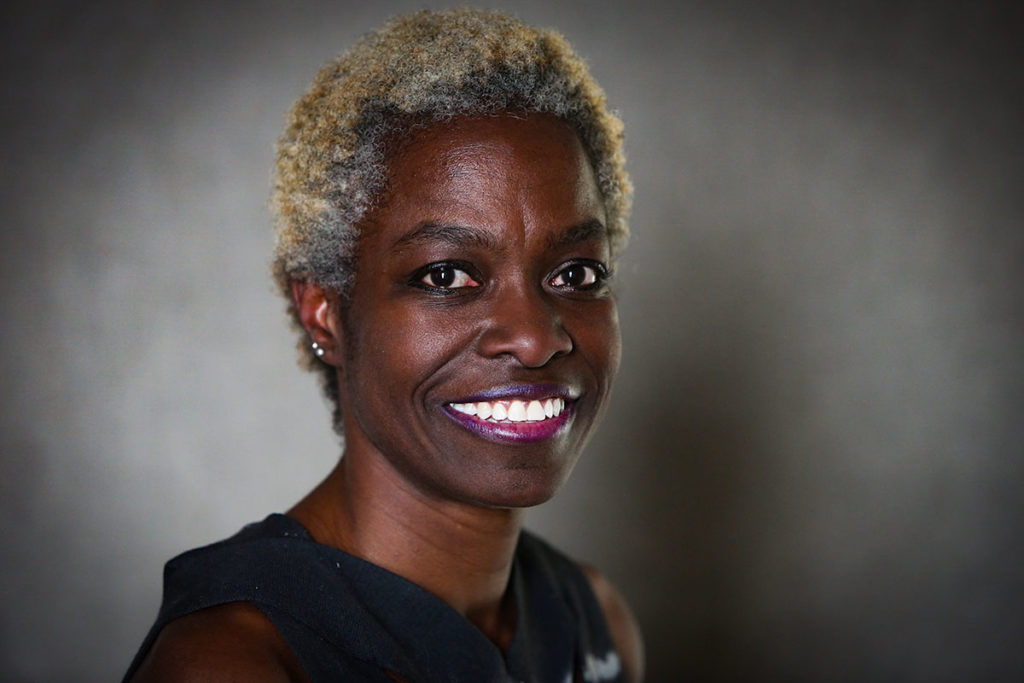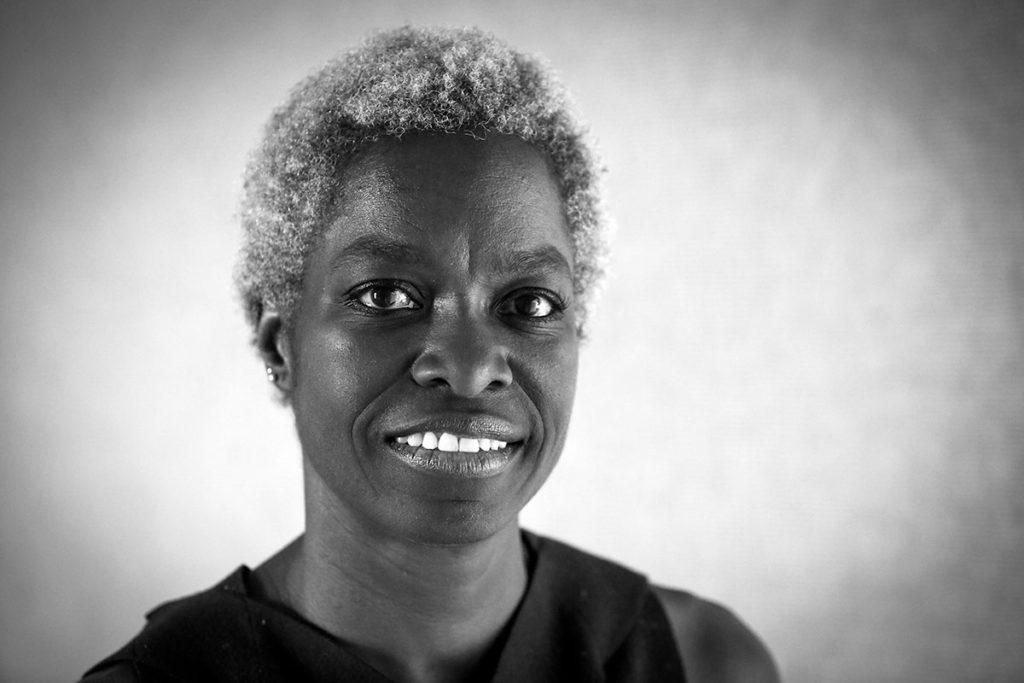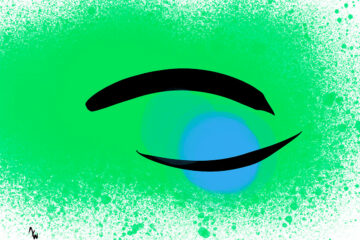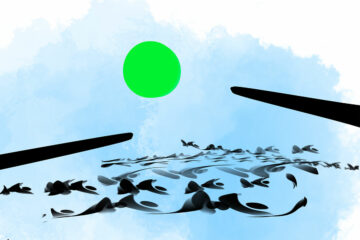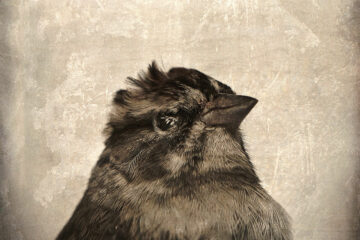Humanitou hosted a pop-up event during Arts Month as part of ArtPOP, a local-arts series supported by the Pikes Peak Arts Council and the Cultural Office of the Pikes Peak Region. Participants shared stories and were photographed during 30-minute sessions. The conversation below is one of seven in the Humanitou ArtPOP series.
Vanessa Little teaches, artfully. At the piano and Miss Vanessa’s Piano Studio. As a storyteller through Li’l Miss Story Hour. In classrooms once filled with kindergartners and those once filled with college freshmen. In her friendships and in this conversation.
When Vanessa sat with Humanitou as part of the ArtPOP Series, she shared about loss and grief, and how and why she shines her light in spite of those experiences of darkness. With a smile.
An artist. A mathematician. A teacher.
Meet Vanessa Little.
Humanitou: You mentioned loss as it relates to family and health as something of importance to you when you applied for this Humanitou ArtPOP experience. What would you like to share?
Vanessa: What I had in mind is how I’ve used art and how art has evolved in my life. It’s changed over the years based on the stages of grief and the types of grief that I’ve experienced through my life.
The first one was my mom, in 1997. She passed away from a heart attack.
Second was my health. In 2009, I had a rock-climbing accident and I fell 40 feet. I had many surgeries. I was in the hospital for three months and convalescing for two months after that. There’s a lot of physical chronic pain I deal with daily from that, but I bounced back pretty well.
My dad passed away in November 2012. In 2013, I was diagnosed with pulmonary hypertension, which is like a miscommunication between the heart and the lungs.
The lungs can have pressure in the same way that you measure blood pressure. If you have high pressure in the lungs, it makes it hard for the left ventricle to pump like it’s supposed to; it does extra work, so it gets tired. I get out of breath.
Then in January of (2019), I was diagnosed with atrial flutter. So that adds another layer to things. The heart’s already tired and working hard to beat against the high pressures.
Now, it’s beating abnormally. It’s trying to compensate. It’s doing so much work, it’s getting really tired. The ups and downs with my breathing are getting harder as I get older.
Humanitou: A common thread through all that, for sure, is grief. It’s a lot. A lot to go through, to live with. How have you handled those things over the years?
Vanessa: I would say, when my mom passed away in 1997, my focus actually at that time was taking care of my family, my brother and my dad. … It’s such a sad story.
My brother was getting out of the military and flying home to see my mom, and she was gone before he got there. So, in my brain, I kind of shut down my grieving process to help my him grieve, and help my dad grieve.
I kind of ignored it. The art I put my focus on was teaching. I’ve been teaching for quite a while. At the time, I was a classroom assistant. I put all of my energy into that, into my kids and into my craft of teaching them.
I finished my undergrad degree and put all my energy into, “I’m going to make learning as artful and creative as I can for children.”
I wanted to do it for children of color, and I knew there were children of color in smaller communities here in Colorado Springs, but instead I moved to D.C. (until returning to Colorado in 2015).
I moved out there and, along with putting my effort into my teaching craft, I also ended up connecting with the dance community. I got very involved in dance, mostly modern dance, a little bit of hip hop.
I went home very discouraged and cried. I said to myself, ‘There’s really no point in all these goals I have for the rest of my life, because this doctor says I’m probably not going to make it past these next few years … ‘
I did a couple shows with a collective and helped a friend build up this collective. That was my life. I know I should have gone to therapy, but that was my therapy. I was putting all of myself into that, especially my kids.
I worked in low-income areas. I worked in Prince George’s County, a northeast district in Washington, D.C., a very repressed kind of area. Actually, the last school that I worked at, the community had asked the police to create martial law in their neighborhood. They were so afraid because that year there had been so many violent crimes.
I felt very connected to those kids. Every day that they came into that room, I was like, “This is your safe space and we’re going to do all of our learning based on art.” That’s how I dealt with losing my mom.
When I had my rock climbing accident, I stopped teaching for a while. I decided to go back to school. I went to grad school for math. I decided that, since my body had all this stuff going on that made it harder for me to keep up with little kids, because I taught kindergarten and first-grade, I would get my Master’s in math and teach college math.
It was the same kind of thing. I made an effort to make mathematics artful. I’m a mathematician and I’m an artist, so I see both of those things. I see a tree and I see a Fibonacci sequence. I see the storms that are swirling in the southeast and I’m like, “Yeah, that’s a mathematical formula, too.”
So I tried my best to connect those things with my students. Music, a lot, and art. Teaching college was great. I loved it. Freshmen and sophomores really are just tall five- and six-year-olds. Both groups love stickers. Both groups still want that love and that affirmation from the teacher figure.
My colleagues preferred teaching grad school classes and kids who were more in the adult stage than in the beginning learning, but I liked that stage.
Humanitou: If we look at the several major life events you’ve mentioned, what do you feel like you’ve learned about the human experience of grief and loss?
Vanessa: I have definitely learned to be more patient. I have definitely learned to look at pretty much everyone I see and say to myself, “That person has a story.”
If somebody cuts me off in traffic or somebody uses an unkind expletive as I’m doing whatever, if I did something that offended them or that they didn’t like … I try not to be as reactive.
I try. It’s hard. I’m a human. But I try to be like, “That person has a story, and it’s because of personal experiences.” I see people with grouchy faces and pushing their way through people. But something might be happening with them.
Humanitou: There are a lot of ways to react to life. You could go into that why-me, angry place. It would be an understandable response. Instead, you take the path of being a light in the world. How or why?
Vanessa: I have had angry times.The angriest time, I would say, was when my dad passed away.
I grew up Christian, so I was angry with the Creator. I was like, “This is not fair. Most people get to have their parents into adulthood, and they get to see those grandkids. I’m not going to get that, and with both parents.”
I still struggle with the anger. But … the anger affects my illness way more than me looking at the positive side of things and being like, “It is what it is. It does suck horribly, and I miss my daddy. A lot. But he would want me to live my life.”
If I can use my experience to support other people, that’s just better, to me. When I’m with other people, I’d rather be positive and support them, help them through their times of loss and grief.
And, actually, that’s happened. Since my mom, it’s like the universe brought people into my life, and I think it’s because I try to do my best to be as understanding of their feelings without saying things like, “I completely get where you’re coming from.”
I try not to say that to people, because I don’t completely get where they’re coming from. I try to let them say to me x, y, z. If I can relate to one of those things that they said, then I’ll say that.
I think really the thing that I have been wanting to spread to the world is that everyone has a story. Everyone has a story.
But I don’t like to go to people who are experiencing some kind of loss, and they haven’t said anything yet, and I say to them, “Oh, I know exactly how you feel.”
Because that happened to me. I know people were trying to help, but it made it … kind of, worse.
That’s definitely one reason why I feel like putting light out into the world is better than the darkness, because for me, I did receive a lot of that darkness in the guise, I guess, of caring and wanting to be supportive.
It’s hard. People don’t know how to deal with grief, so sometimes they say things that just … “Oh, no. That’s not something you say to somebody who’s grieving.”
So I try.
Humanitou: It’s a rare … I’ll say skill. I think having the heart for it, to be a compassionate, true listener. I think we all want to know we’re heard. You don’t have to fix my worry, right? Just listen and care.
Vanessa: One of my friends likes to refer to me as an empath. She is always distinguishing between sympathy and empathy, empathy being more of really putting yourself in that person’s shoes.
Also, like you said about the heart, really just feeling. I often can feel what other people are feeling. I think that often can help a little bit. Sometimes it hurts, because I feel whatever pain somebody else is feeling.
I just taught a workshop for disability with Poetry 719. One of the things I wanted to try to leave them with at the end of that session was my process when the anger does come, when the feeling sorry for myself does come.
I had had a doctor’s appointment a couple days before. It was very discouraging, but prior to that I had done all these things that felt like feats for me, like I rode my bike all over downtown, and I was feeling so good.
I get to the doctor and he’s like, “This, this, this, this, this … ” a list of things that I should do, if I want to improve my quality of life. He tells me, “Things are getting progressively worse.”
I went home very discouraged and cried. I said to myself, “There’s really no point in all these goals I have for the rest of my life, because this doctor says I’m probably not going to make it past these next few years … ”
So, yeah, I had a little pity party for myself. Then I woke up in the morning and just didn’t want to be sad anymore. It doesn’t fit me.
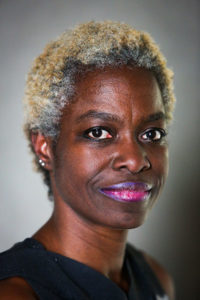 I got up and was like, “Look, you’ve been through this song and dance before. You’ve had doctors who told you you wouldn’t live to see 45, and you’re 46. You’ve had doctors who told you to never get on an airplane, because you’ll die. You’ve still been flying and traveling for the past five to six years. So, Vanessa, what are you going to do about this situation?”
I got up and was like, “Look, you’ve been through this song and dance before. You’ve had doctors who told you you wouldn’t live to see 45, and you’re 46. You’ve had doctors who told you to never get on an airplane, because you’ll die. You’ve still been flying and traveling for the past five to six years. So, Vanessa, what are you going to do about this situation?”
I got up and did some of the same routines I did before when a doctor gave me negative feedback. Within hours I was feeling better, feeling more positive.
Sometimes I can go for several months and not have to restart myself. Sometimes there are days where everything is coming at me that I have to restart often.
Humanitou: Perspective is so important. The strength to reset the attitude, to shine your light rather than add to darkness … Have you come to a place of what you’ve decided life must be about?
Vanessa: It’s about quality, and the quality, for me, is in my relationships. It doesn’t have to be relationships with people who are close to me. If I can walk down the street and throw a smile and make somebody’s day, that’s great.
Or somebody didn’t have enough change for their bagel at the bagel shop, and I happen to? It’s just money. It’s just money.
The things … I mean, I have a lovely house. I have things. I have memorial items that I keep to remember my parents, but even if my house burned down and all those things were gone, I’d still have the memory of them, and I’d still have the ability to continue to spread their light through me to other people.
I wrote a song in April saying that I am a beacon for my parents. I want to be a legacy for them as long as I possibly can. For me, yeah, it’s about relationships and keeping them as positive as possible.
And I think really the thing that I have been wanting to spread to the world is that everyone has a story. Everyone has a story.
